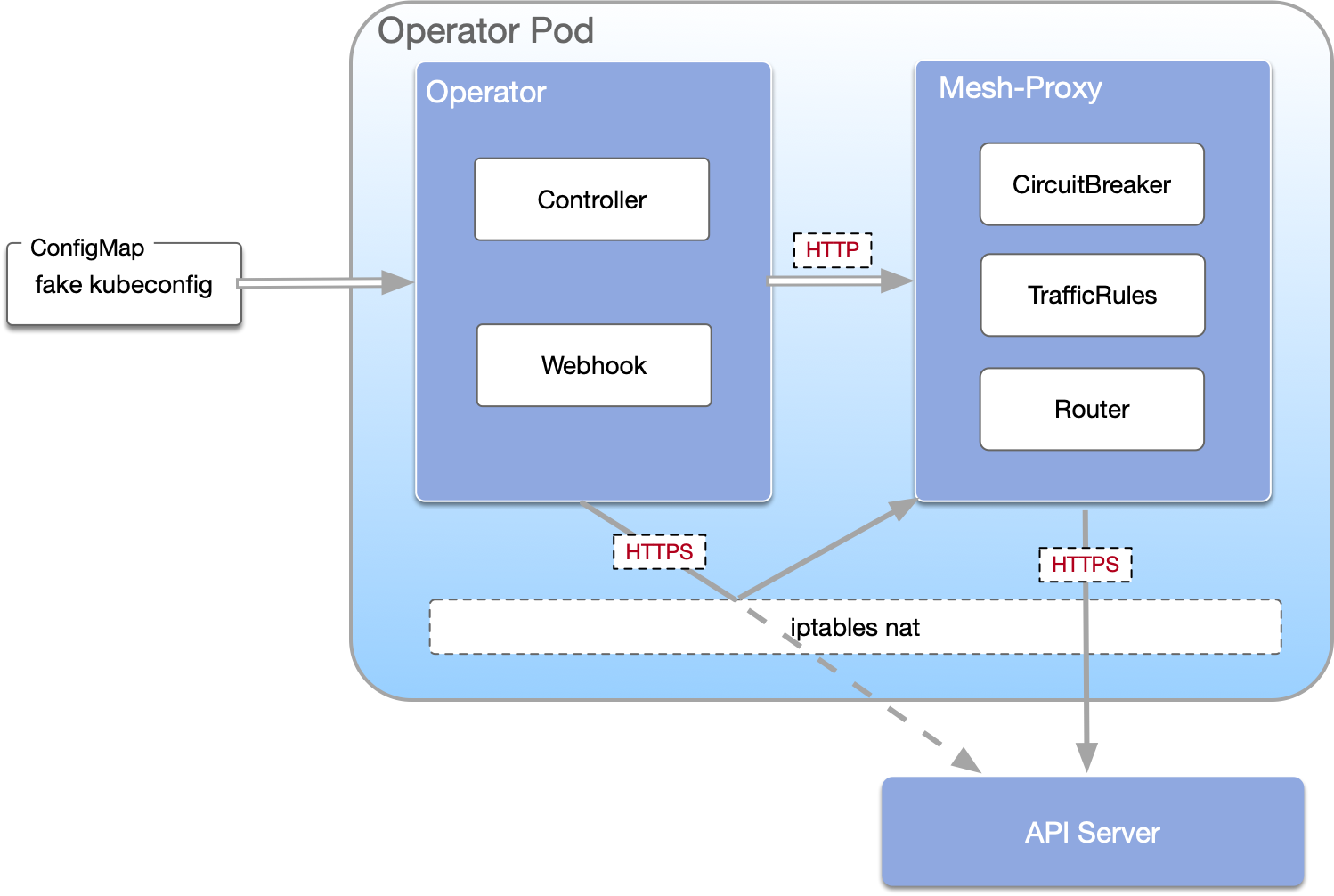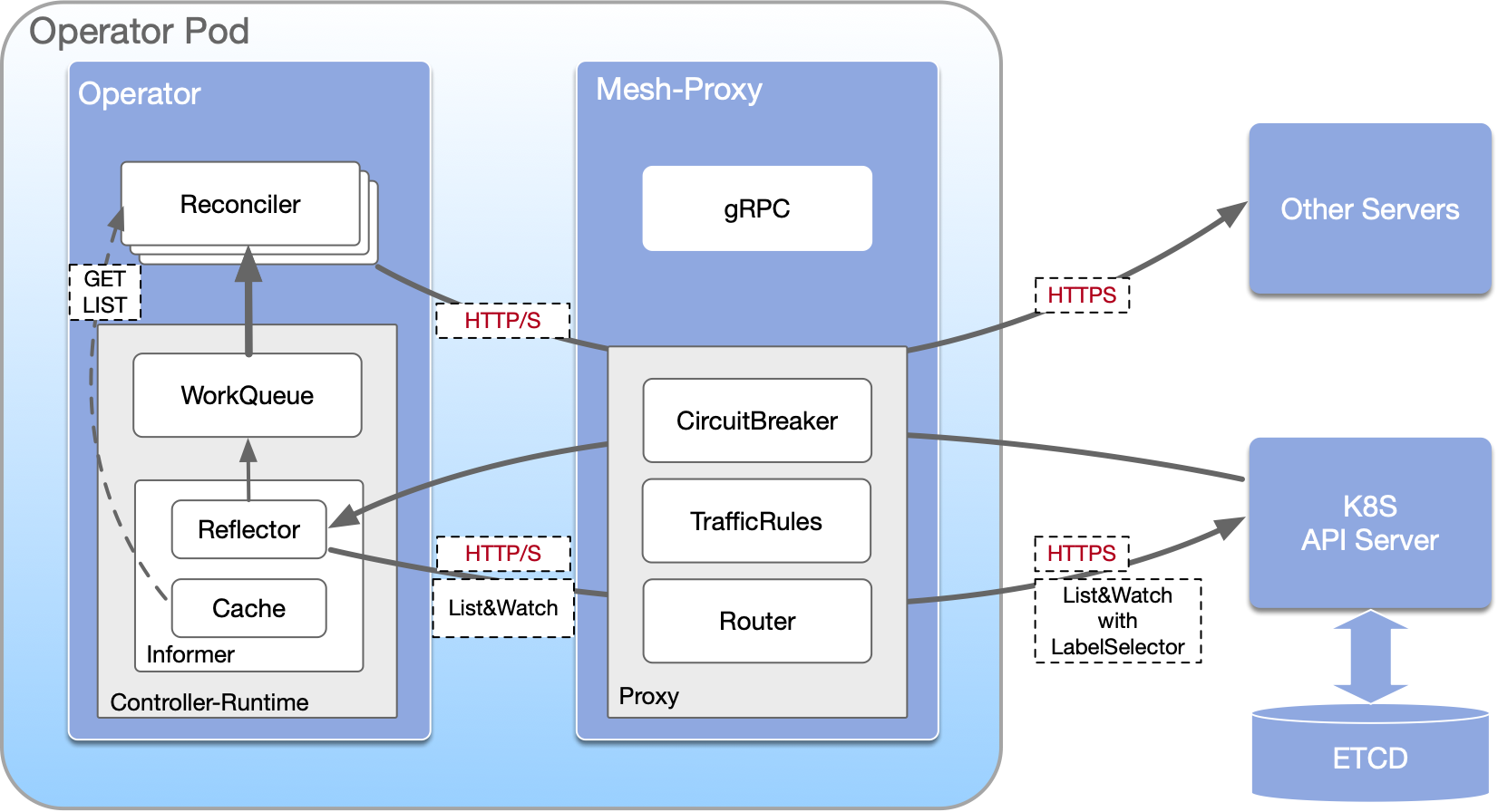Concepts
Generally, a ctrlmesh-proxy container will be injected into each operator Pod that has configured in ShardingConfigs.
This proxy container will intercept and handle the connection by between API/Oth Server and controllers/webhooks in the Pod.

ApiServer proxy method:
- iptables nat:
- fake kubeconfig:
The ctrlmesh-manager dispatches rules to the proxies, so that they can route requests according to the rules.
A core CRD of ControllerMesh is ShardingConfig. It contains all rules for user's controller:
apiVersion: ctrlmesh.kusionstack.io/v1alpha1
kind: ShardingConfig
metadata:
name: sharding-demo
namespace: operator-demo
spec:
controller:
leaderElectionName: operator-leader
webhook:
certDir: /tmp/webhook-certs
port: 9443
limits:
- relateResources:
- apiGroups:
- '*'
resources:
- pods
- services
selector:
matchExpressions:
- key: ctrlmesh.kusionstack.io/namespace
operator: In
values:
- ns-a
- ns-b
matchLabels:
app: foo
selector:
matchExpressions:
- key: statefulset.kubernetes.io/pod-name
operator: In
values:
- operator-demo-0
- selector: for all pods under a shard. It can be a subset of pods under a StatefulSet.
- controller: configuration for controller, including leader election name
- webhook: configuration for webhook, including certDir and port of this webhook
- limits: shard isolation is achieved through a set of
ObjectSelector.
When manager is first launched, shard labels will be added to all configured resources.
ctrlmesh.kusionstack.io/sharding-hash: the hash value calculated based on the namespace ranges from 0 to 31.ctrlmesh.kusionstack.io/namespace: the namespace referring to this resource.ctrlmesh.kusionstack.io/control: under ctrlmesh-manager control.
In this repo, we only support ObjectSelector type of flow control,
which means the ctrlmesh-proxy will proxy http/s requests to the ApiServer,
and inject a LabelSelector into the request param for the requested resource type.
Router:
